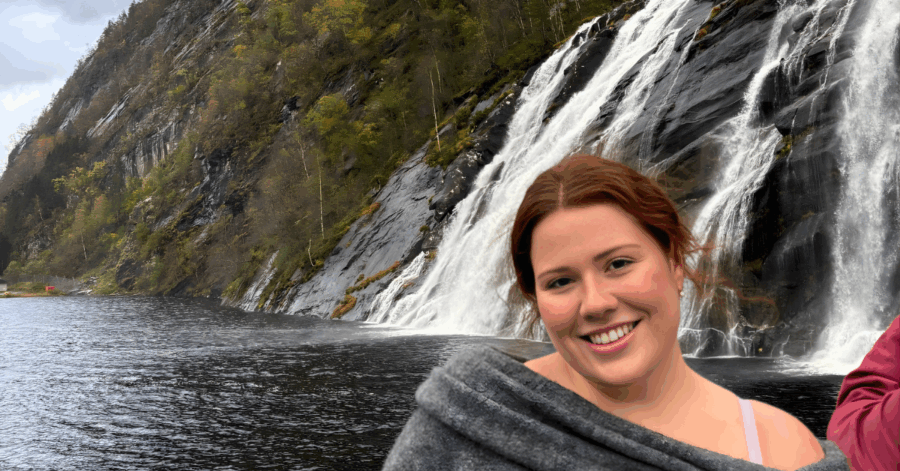Hey! My name is David Zulli, and I am a 3rd-year International Relations and Global Studies and Anthropology double major with a certificate in Spanish for Business Professions. This fall, I have the privilege of studying in Granada, Spain, a small city in Southern Iberia that is famous for pomegranates, flamenco, and the Alhambra, a castle/fortress complex built during the Arab occupation of Spain in the Middle Ages. However, I am ultimately here for one reason — to learn Spanish.
As many have told me prior to studying abroad, immersion is the best way to learn a language. As you could imagine, I was incredibly eager to finally be able to use my rather extensive background in Spanish, all 2 semesters of it, in everyday life. However, when I arrived in Granada, I was faced with a problem that I had not previously encountered in the classroom: the fear of sounding stupid. In foreign language classes in the US, there is this underlying understanding that everyone is there to learn; therefore it is ok to make mistakes, have an American accent, and sometimes sound like a complete fool. When I was studying Spanish at UT, I felt rather confident in my proficiency; I always received good grades on tests, I enjoyed presenting in front of the class, and I did well during in-class discussions/debates. I was an overall good Spanish student. However, the moment that I landed in Spain, I was hit with an overwhelming wave of insecurity about my Spanish-speaking abilities. For example, when I needed help in the Madrid airport, I almost missed my connecting flight because I was too scared to ask for assistance. On paper, I could have easily written out my question. In other words, I knew the vocabulary and grammar to have pursued help in that moment, but my fear of stumbling over my words, sounding like an American, and making grammatical errors took precedence. Moreover, after 3 days of living in Granada, I had only eaten two meals (sorry mom) because I was so anxious about going into a restaurant alone and ordering food in Spanish. Again, these encounters only required a basic understanding of Spanish, but rather than actually engaging with locals and having a truly “immersive” time in Spain, I chose to withdraw.
After my first week, though, I pushed myself to make a Spanish friend, someone who I could feel comfortable practicing Spanish with them. I met my now friend, who so happens to also be named David, at a Starbucks near my school. Once we got past basic introductions, conversation then proceeded to flow for the next hour and a half. We talked about passions, previous travel experiences, music, pop culture, dreams and aspirations — all in Spanish. Here I was, the student who was too afraid to ask “dónde está la puerta para el vuelo 8684” (where is the gate for flight 8684), having a relatively in-depth conversation with a native Spaniard. Was I making plenty mistakes throughout that conversation? Absolutely. However, I was slowly but surely overcoming this paralyzing fear of sounding stupid in my non-native language. This conversation was incredibly affirming for me, because I not only proved to myself that I am a good Spanish speaker, but also learned that there is no shame in making mistakes when learning a new language. The only real mistake one can make when learning a language, though, is being too scared to try. Thus, I encourage all future study abroad students to understand that this fear is understandable, valid, and expected. However, overcoming this anxiety and being willing to perceive mistakes as learning experiences will not only further your growth as a language student, but also enrich your time abroad by allowing you to connect with other people, build relationships, and make memories that can be remembered in more languages than one.
This post was contributed by David Zulli, a 2019 Global Ambassador majoring in International Relations and Global Studies and Anthropology. David is studying abroad on the AIFS: Granada affiliate program.
Don’t get left behind. Find your education abroad adventure>>






